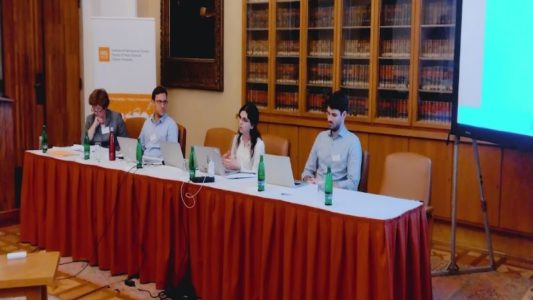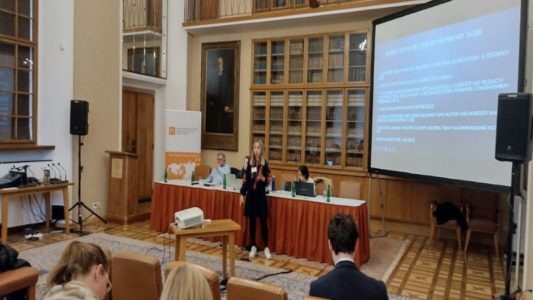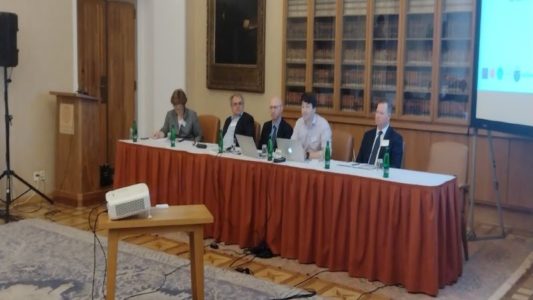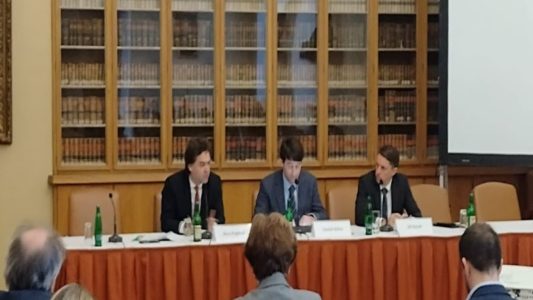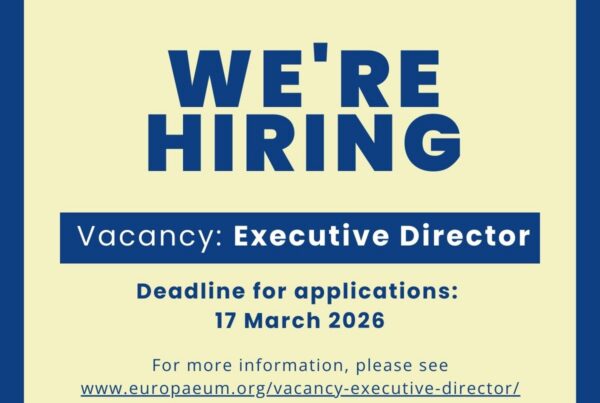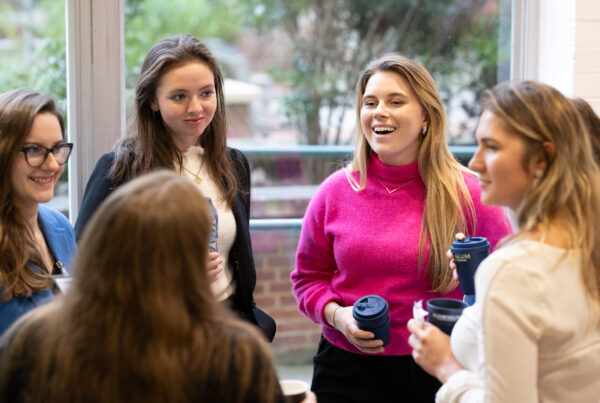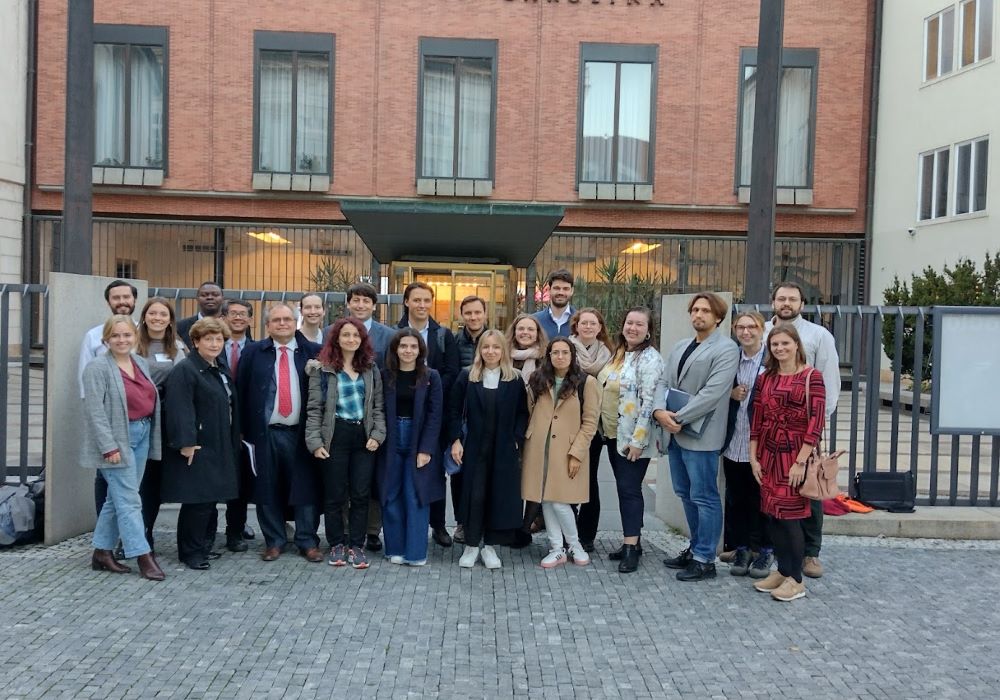
Report by Adrienne Cheasty, Policy Advisor to The Europaeum
The Europaeum and Charles University cohosted a conference on European defence, in Prague on October 24-25. Topics addressed included: the new security landscape since the invasion of Ukraine, Eastern neighborhood concerns, EU-Russia relations, NATO and transatlantic perspectives, migration and related humanitarian considerations, the future security framework, and defence industry strategy (including for missile production, hybrid conflicts, and killer robots).
Dr. Stanislav Secrieru (EUISS) and Prof. Lieutenant Colonel Seth Johnston (Heidelberg and Georgetown University) opened the conference with their expert assessments of what has now changed for European security, from the European and NATO sides. The keynotes of the conference were inspiring speeches by Deputy Prime Minister Popescu of Moldova and Deputy Foreign Minister Kozák of Czechia, on the stakes for their countries, for Europe, and for global freedom and democracy. These were followed by an incisive panel taking stock of the likely future and options, with Dr. Iryna Solonenko (Centre for Liberal Modernity), Prof. Benjamin Tallis (German Council on Foreign Relations), and Dr. Matúš Halás (Prague Institute of International Relations).
Rich Europaeum-delegate sessions examined aspects of the security challenge in more detail.
- In a panel on the human side of the crisis, Viktoria Grivina (The University of St. Andrews) looked at the social protection role of big firms; Clara Van Thillo (KU Leuven) described the plight of stateless refugees; and Joana Ramos (Universidade Católica Portuguesa) discussed the role churches could legitimately play in helping migrants.
- For a panel on the security framework, Anna Stepanian (The University of Tartu) suggested that security decisions are driven not only by current threats but also by national memory; Thijs de Cuyper (KU Leuven) examined the EU’s use of legal tools as economic weapons; and Keith Prushankin (Freie Universität Berlin) proposed a place for Russia in the post-war security architecture.
- The final panel confronted difficult technological issues: Lucas Hellemeier (Freie Universität Berlin) discussed the economic choices facing Europe’s missile producers; and Dimitri Perepelkin (Freie Universität Berlin) looked at the strategic and moral choices surrounding autonomous weapons systems. Delegates from other Europaeum universities (including The Graduate Institute in Geneva, Jagiellonian University in Krakow, and The University of Oxford) were discussants and rapporteurs.
The conference ended with a lively delegate-led briefing exercise on European foreign policy priorities. In the face of passionate advocacy for competing priorities, consensus formed around support for more European strategic autonomy, and the need to channel more resources to manage the migrant challenge.
The Europaeum is extremely grateful to Charles University, and to Professor Tomas Weiss in particular, for their leadership in co-sponsoring this critical topic, and for their generous hospitality.

